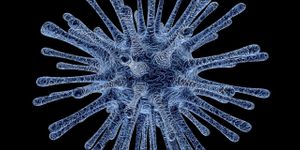A concerning new study suggests that exposure during pregnancy to low doses of a common chemical preservative called propylparaben can decrease the protection that pregnancy hormones provide against breast cancer. The research, conducted by scientists at the University of Massachusetts Amherst, has been published recently in the journal Endocrinology.
Propylparaben is an endocrine-disrupting chemical found in food, drugs, and cosmetics; it disrupts the hormonal system, which in turn has consequences on the body. Mammary glands are particularly sensitive to hormonal interference, and while pregnancy hormones usually protect against breast cancer, exposure to propylparaben appears to lessen this safeguard, explains senior author Laura Vandenberg.
“We found that propylparaben disrupts the mammary gland of mice at exposure levels that have previously been considered safe based on results from industry-sponsored studies. We also saw effects of propylparaben after doses many times lower, which are more reflective of human intake," Vandenberg says. "Although our study did not evaluate breast cancer risk, these changes in the mammary tissue are involved in mitigating cancer risk in women."
Vandenberg, along with co-lead author Joshua Mogus, analyzed the effects of propylparaben exposure on mothers’ mammary glands post-exposure. Compared with the control of mice not exposed to propylparaben, the exposed mice showed increased rates of cell proliferation in mammary glands, as well as less-dense epithelial structures, fewer immune cell types, and thinner periductal collagen. "Some of these changes may be consistent with a loss of the protective effects that are typically associated with pregnancy," elaborates Mogus.
This research opens the topic of chemical regulation, which falls largely on the FDA and industries. "Because pregnant women are exposed to propylparaben in many personal care products and foods, it is possible that they are at risk," Mogus comments. "This chemical is so widely used, it may be impossible to avoid entirely. It is critical that relevant public health agencies address endocrine-disrupting chemicals as a matter of policy."
Sources: Endocrinology, Eureka Alert




